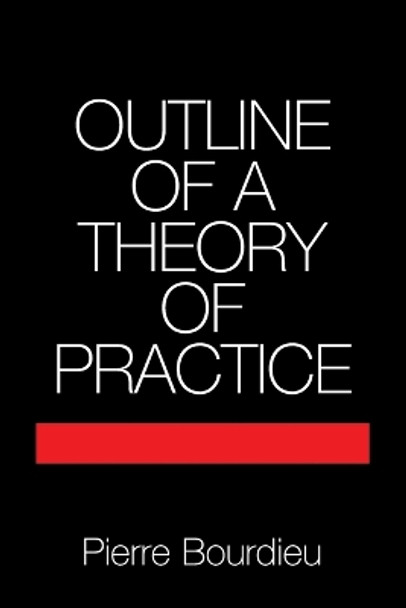Outline of a Theory of Practice is recognized as a major theoretical text on the foundations of anthropology and sociology. Pierre Bourdieu, a distinguished French anthropologist, develops a theory of practice which is simultaneously a critique of the methods and postures of social science and a general account of how human action should be understood. With his central concept of the habitus, the principle which negotiates between objective structures and practices, Bourdieu is able to transcend the dichotomies which have shaped theoretical thinking about the social world. The author draws on his fieldwork in Kabylia (Algeria) to illustrate his theoretical propositions. With detailed study of matrimonial strategies and the role of rite and myth, he analyses the dialectical process of the 'incorporation of structures' and the objectification of habitus, whereby social formations tend to reproduce themselves. A rigorous consistent materialist approach lays the foundations for a theory of symbolic capital and, through analysis of the different modes of domination, a theory of symbolic power.
Through Pierre Bourdieu's work in Kabylia (Algeria), he develops a theory on symbolic power.Reviews'[Outline of a theory of practice] can be highly recommended as a complex and often beautifully written piece of philosophical literature.' The Times Higher Education Supplement
'Few bodies of work are so systematic, so comprehensive, so creative, so fertile as Bourdieu's. Few theorists glide so adroitly between levels and styles of analysis, and few reach so keenly to the heart of so many analytic issues.' American Journal of Sociology
Book InformationISBN 9780521291644
Author Pierre BourdieuFormat Paperback
Page Count 255
Imprint Cambridge University PressPublisher Cambridge University Press
Weight(grams) 413g
Dimensions(mm) 226mm * 151mm * 19mm









